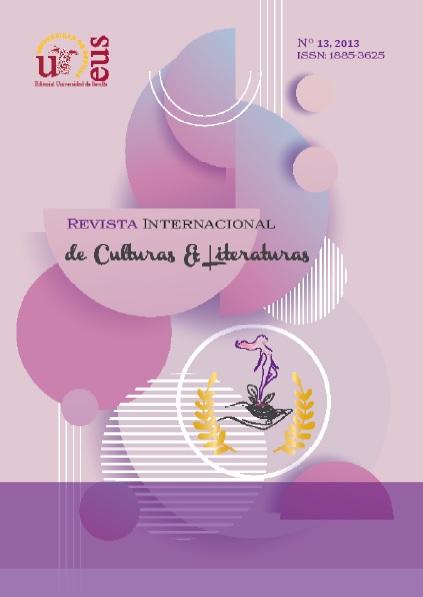L'ASSENZA ''PRESENTE'' DI GEORGE ELIOT: FRA CENTRO INGLESE E MARGINE MEDITERRANEO
Palabras clave:
scrittura femminile, sguardo maschile, Mediterraneo, meridionismoResumen
Il saggio si cimenta con la questione dell’assenza di George Eliot come autoredonna sulle scene letterarie. La romanziera inglese scelse di celare il proprio genere sotto uno pseudonimo maschile, apparentemente, per poter affrontare nel suo centro ciò che è stato chiamato “the regime of the male gaze”. Questo suo atto, considerato ambiguo dalla critica femminista, può dirci qualcosa, non solo in relazione a questioni di posizionamento di genere, ma anche in relazione a questioni di posizionamento di ciò che nel suo secolo veniva chiamata “razza”. In altre parole, il saggio si occupa, dal punto di vista postcoloniale, dei suoi rapporti di autrice al centro della cultura patriarcale metropolitana con i margini mediterranei (Italia e Spagna) orientalizzati, ovvero meridionizzati, che lei visitò durante i suoi viaggi e di cui scrisse nelle sue lettere e nei suoi romanzi.
Abstract
The essay tackles the issue of George Eliot’s absence from the literary scene as a female author. Apparently, the author of Middlemarch chose to disguise her gender under a male pseudonym in order to face “the regime of the male gaze” at its very core. This ambiguous act may reveal something meaningful about her relationship, as an English author belonging to the patriarchal metropolitan centre, with the European orientalised margins (Italy and Spain), which she visited and talked about both in her works and letters.
Descargas
Citas
Boswell, J., Life of Johnson, Oxford, Oxford UP, 1965.
Cazzato, L. “Oriente within, Nord without: il meridionismo e i romantici inglesi”, Altre Modernità, 8 (2012).
Eliot, G., “Silly Novels by Lady Novelists”, Westminster Review, 66 (1856).
Eliot, G.. Adam Bede, Ware, Wordsworth Editions, 1997.
Eliot, G.. Daniel Deronda, Harmondsworth, Penguin, 1995.
Eliot, G.. Middlemarch, Ware, Wordsworth Classics, 1994.
Eliot, G.. Scenes of Clerical life, Harmondsworth, Penguin, 1973.
Eliot, G.. The George Eliot Letters, 4 vols, New Haven, Yale UP, 1954.
Eliot, G.. The Spanish Gypsy: The Legend of Jubal: and Other Poems Old and New, Edinburgh and London, Blackwood, 1906.
Gallagher, C., “George Eliot and Daniel Deronda: The Prostitute and the Jewish Question”, Sex, Politics and Science in the Nineteenth-Century Novel, ed. R. B. Yeazell, Baltimore, John Hopkins UP, 1986.
Gilbert & Gubar, Madwoman in the Attic: The Woman Writer and the Nineteenth- Century Literary Imagination, New Haven, Yale UP, 1979.
Hudson, N., “From ‘Nation’ to ‘Race’: The Origin of Racial Classification in Eighteenth Century Thought”, Eighteenth-Century Studies, 29 (1996).
Miller, N., Subject to Change: Reading Feminist Writing, New York, Columbia U.P., 1988.
Thackeray, W. M., “The Kickleburys on the Rhine”, The Works of William Makepeace Thackeray, 13 vols, London, Smith Elder, 1895.

